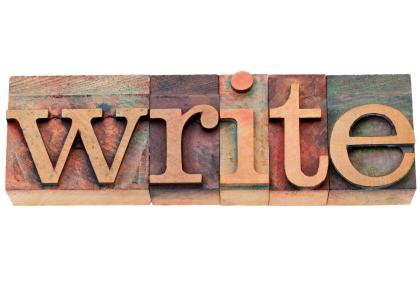 You know you need a great writer to help you develop your written content: brochures, copy for your website, posts for your blog, and so on. But what kind of writer is right for your projects?
You know you need a great writer to help you develop your written content: brochures, copy for your website, posts for your blog, and so on. But what kind of writer is right for your projects?
In today’s addition to our ongoing hiring series, we’ll review three common types of writers, what they do, and how to find them. Keep in mind that some writers will have overlapping skill sets or backgrounds (which can be a great thing if you have multiple needs), while others will be very specialized. Either way, we think it’s important for you to know what each job title implies and what characteristics to look for in a qualified candidate.
What they do
Copywriters develop marketing and sales content for clients and/or employers. They often work across both print and digital formats, though the most experienced will likely have more print samples in their portfolios. And they frequently come from a marketing or creative writing background.
Web writers specialize in digital copy. They may have some print or longform copy samples, but generally they write content for websites. This type of writer usually has a solid understanding of meta data and SEO, and may dabble in content strategy or user experience.
Bloggers are writers who focus on copy developed specifically for blogs.
What to look for
When hiring a writer (from any of the three options above), we look for:
- Excellent writing skills. Obviously, this person’s words will become an important, client-facing part of your organization. Communication and writing talents are vital.
- The ability to condense complex ideas into simple explanations. In an oversaturated market, the ability to communicate ideas succinctly and simply is important. So when you’re hiring a writer, look for someone who can distill complex information into “human speak” free of jargon and complexity.
We also have a few ideas on what to look for in each type of writer:
Web writers
- A basic understanding of meta data and SEO. If you plan on optimizing your content (which you should) or if you have lots of content that needs organization, these skills will come in handy. A writer with a good handle on SEO can take a keyword list and integrate it into your website, helping you rank better in search engines. And a writer with a meta data understanding can help you organize large quantities of content by category, author, etcetera.
Copywriters
- A marketing background. Copywriters should be savvy when it comes to marketing and sales, if not have a solid background in these fields.
Bloggers
- Research skills. Writing great blog posts or other informative, often longer-form content often takes research. Your blogger should like researching topics and learning about new ideas.
- A journalism or longform copy background. Bloggers are often asked to write article-length posts. A journalism background or experience with creative non-fiction is an asset.
Where to look
Now that you know what type of writer you’re looking for and what skills they might have, it’s time to start the search. Here are a few places to look for writers:
- The Egotist network: This group of locally focused websites is popular with cutting-edge creatives. And it’s growing fast, so if it’s not yet in your city, keep tabs on its expansion so you don’t miss a launch.
- The Creative Group: With offices in numerous states across the U.S., this staffing site attracts applicants with experience in various writing specialties.
- Mediabistro: This site’s job listings attract all three types of writing candidates, often with plenty of media experience.
- Journalism or creative writing programs: Looking for entry-level writers or interns? Check your local colleges and universities.
What to ask
When you’re finally ready to interview, use these questions to get started:
- What kind of writing do you enjoy most? In which formats or channels do you excel?
- How do you approach a new client or employer? What would you need to know about us in order to be successful?
- Tell me about some of your favorite projects, how they came together, and what kind of results they produced?
For these jobs, writing samples are imperative. If you’re hiring an intern or entry-level writer, ask him to write a short sample based on your guidelines or to take an editing test. Mid- or senior-level writers, on the other hand, should have plenty of samples. Toss out your test, take a look at what they’ve recently done, and call their references to explore further.
What tips do you recommend for hiring writers? Do you disagree or have something to add to the definitions we’ve provided for each writing type? Share your thoughts in the comments below!

